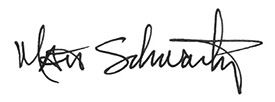Dear Friends.
At Constructive, our mission is to use the power of communications, design, and technology to create a more empathetic, equitable, and sustainable world.
For 20 years, we’ve been fortunate to partner with ambitious organizations working at the forefront of social change to advance this mission. For the last few weeks, like many, we’ve been overwhelmed by feelings of anger, sadness, shame, anxiety, and despair.
In thinking about how to respond to recent events, it’s been hard to find words to meet this moment. Words that can do justice to yet another racial injustice and that are worthy of sharing on behalf of our company—a diverse group with different backgrounds and life experiences. As difficult as this is, in a small company like ours, I feel that it is my responsibility as its founder to speak up.
I’ve been taking a close look at myself, my role in Constructive, and at Constructive’s role in helping to build a world that’s aligned with our values. This work started (and continues) with listening, learning, and gaining new perspective.
It’s critical to recognize that anything I say is said from a position of incredible privilege in American society. As a white male, no matter how much I see, listen, believe, and empathize, I will never know what it means to be systematically disenfranchised from the system that I benefit from—benefits accrue to me and all white people at the expense of others because of the color of their skin. To acknowledge this is horrifying. But it is infinitely less horrifying than being forced to live with the pain that white America inflicts on BIPOC America.
When you’ve dedicated your career to working for social change, it’s too easy to give yourself a pass on your position as a white person of privilege in a systemically racist society. How do my choices, how does my very being perpetuate values and policies that nauseate me? If I’m being honest about what change means for me and for Constructive, then seeking truth to difficult questions is a job that will never end. And because of my position in American society, I have a responsibility to do more.
Constructive is an ally of all those who work for racial justice and we will continue to be intentional about the work we do to live our values and help realize a more just and equitable world. Not just the work we do with our clients, because that’s a given, but also with ourselves through our policies, practices, and culture. Our team brings many different perspectives to this work, so I’m confident we’ll make good progress—and I’m excited to see what’s to come. We’ve already taken tangible actions, which I’ll resist sharing because we don’t get to take a victory lap for doing what must be done. And also because, for any action to be meaningful, it must be sustaining.
And for myself, I’ve got my own work to do, which I’ve started: revisiting old texts and seeking out new voices; embracing discomfort so that I can be better and do more. I’m also grateful to have a 12-year-old daughter who my wife and I are focusing our energies on in a family exploration of the issues of race and justice—and of our relationship to them.
I’d like to thank the members of my team who helped me with their feedback on this letter and acknowledge the insightful words of other leaders that have come before me. This is a generational wake-up call. Let’s not let it go to waste.
In humble solidarity,

Matt Schwartz
Founder and Executive Director
______________
For those who are interested, below are some of the voices and resources that Constructive’s team has been seeking out in our efforts to actively promote racial equality.
Navigating Conversations About Race
It can be hard to find the right words to talk about race but they need to be had. The National Museum of African-American History and Culture created an online platform called Talking About Race, offering guidance and resources for educators, parents and caregivers, and anyone committed equity, for preparing for and initiating these challenging and urgent conversations.
It’s Time to Do The Work
Acknowledging our own implicit biases and the ways that we’ve participated in racist power structures is uncomfortable. But understanding how our biases have formed and why those structures exist is the first step in turning discomfort into change. Tasha K. created the Shareable Anti-Racism Guide, a comprehensive list of books, essays and other media to help you get started and encourage others to do so too.
Reframing American Slavery
In order to understand racism in America in 2020, it’s essential to understand the role of slavery in the nation’s origin and rise to global power. In August of 2019, on the 400th anniversary of American slavery, The New York Times published The 1619 Project, an ongoing initiative to examine the role of slavery in American history. The initiative’s creator and lead reporter, Nikole Hannah Jones, won a Pulitzer for her work in May.
Calling White People In
White people who identify as anti-racist have a responsibility to speak out against racism. Showing Up for Racial Justice (SURJ), a national network of individuals and groups organizing white people around racial justice and dismantling white supremacy, compiled a toolkit of best practices, talking points and conversation starters for talking with other white people about the protests, looting and instances of violence between protesters and police.
How to Be a Better Activist
Knowing how best to respond to social issues like racial injustice isn’t always obvious. In some cases, such as the #BlackOutTuesday campaign on Instagram, well-intentioned actions can cause more harm than good. The Effective Activist Guide compiles research on effective social movements and offers guidance on how to make the most impact as an activist, whether you’re just starting out or looking for new things you can do.
A Remedy for Information Overload
The amount of information in the news and on social media can be overwhelming, especially during times of urgency and uncertainty. The Radical Database was created by artist and activist Angelina Ruiz to provide everyone with a diversity of resources to make it easier for everyone promote racial justice—from supporting black-owned businesses, donating to bail funds, to taking care of your mental health.
75 Things White People Can Do for Racial Justice
Acknowledging that “achieving racial justice is a marathon, not a sprint,” Corrine Shutack created this resource in 2017 and continuously updates it to ensure that each item is accurate and needed today. From providing practical civic and social action white Americans can take to push for change to educational resources and recommendations for organizations to donate to, 75 Things White People Can do for Racial Justice does a great job providing pathways to do more.





